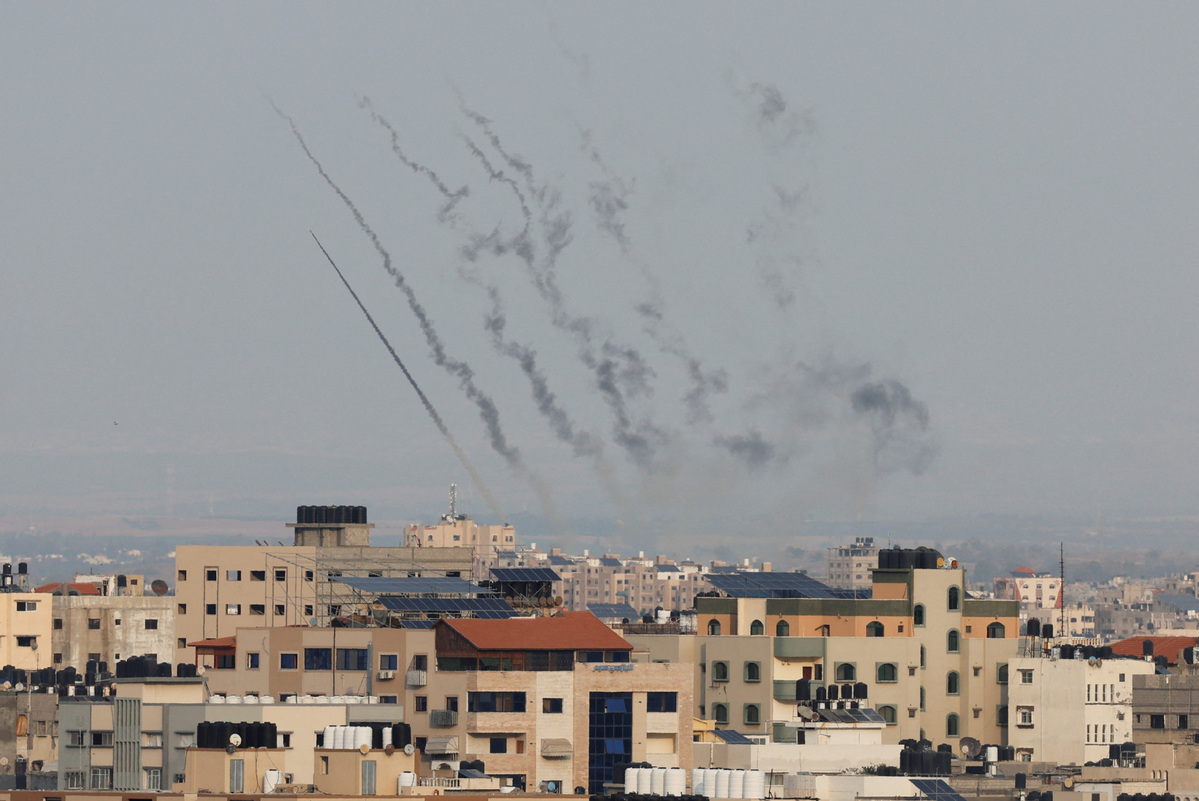Conflict in Gaza expected to calm down soon
By Ma Xiaolin | chinadaily.com.cn | Updated: 2023-10-09 18:34

The fresh military conflict between Israel and the Palestinian militant group Hamas has left over 1,100 dead and thousands injured. Those affected included many civilians on both sides. Israeli Prime Minister Benjamin Netanyahu has declared war against Hamas.
The crisis, particularly the significant number of casualties and injuries, has undoubtedly affected Israel's societal security. The government of Benjamin Netanyahu faces scrutiny, particularly its intelligence and security apparatus. Questions arise about the effectiveness of Israel's past policies, which involved periodic confrontations with Hamas every few years. Israel's hardline right-wing stance and its continuity are also subjects for consideration in Israeli society. During the crisis, internal unity in Israel may strengthen, and the coalition government is unlikely to dissolve in the short term, as no one else is perceived as being tougher than Netanyahu.
This conflict has undoubtedly had a significant impact on stability in the Middle East. Hamas, originating in the south just as the Hezbollah stems from the north, launched a dual-front attack on Israel. Israel has not suffered such a severe loss in decades, prompting them to retaliate aggressively. This will heighten tensions in the Gaza Strip, exacerbating the humanitarian crisis there.
It has also drawn the attention of major powers and regional countries for the time being. However, it should not be exaggerated as a conflict rising to the level of a regional war involving Israel and its neighboring countries.
Typically, conflicts in the Israeli-Palestinian context are addressed through mechanisms such as UN Security Council resolutions, diplomatic negotiations, and international pressure. Additionally, countries like Egypt and Jordan often mediate and facilitate discussions, with the possibility of the involvement of the United States, Europe, and even China through diplomatic channels. However, given the ongoing hostilities from both sides, these mediation mechanisms may not yield immediate results.
The opportunity for peace in the Middle East lies in recognizing that the Palestinian issue remains at the core of the region's problems. Without a resolution of the Israeli-Palestinian conflict, lasting and comprehensive security and peace in the Middle East will remain elusive. It's essential not to overlook the Palestinian problem, even as Israel normalizes relations with an increasing number of regional countries. Furthermore, the inability to resolve the Israeli-Palestinian issue could impact the recent reconciliation process between Saudi Arabia and Iran and, in turn, affect more countries' normalization of relations with Israel.
Strictly speaking, the conflict between Hamas and Israel is unlikely to have a lasting impact on relations between the major regional countries, as it remains fundamentally a Palestinian issue. These countries, including Turkiye, Saudi Arabia, Jordan, and Egypt, have already expressed their positions. The situation is expected to calm down within days, or a few weeks. In the broader Middle East context, dialogue, reconciliation, and cooperation are prevailing trends that are unlikely to reverse in the short term.
Ma Xiaolin is the dean of and a professor at the Institute for Studies on the Mediterranean Rim at Zhejiang International Studies University. This is an excerpt of his interview with China Daily's Liu Jianna.
If you have a specific expertise, or would like to share your thought about our stories, then send us your writings at opinion@chinadaily.com.cn, and comment@chinadaily.com.cn.
























